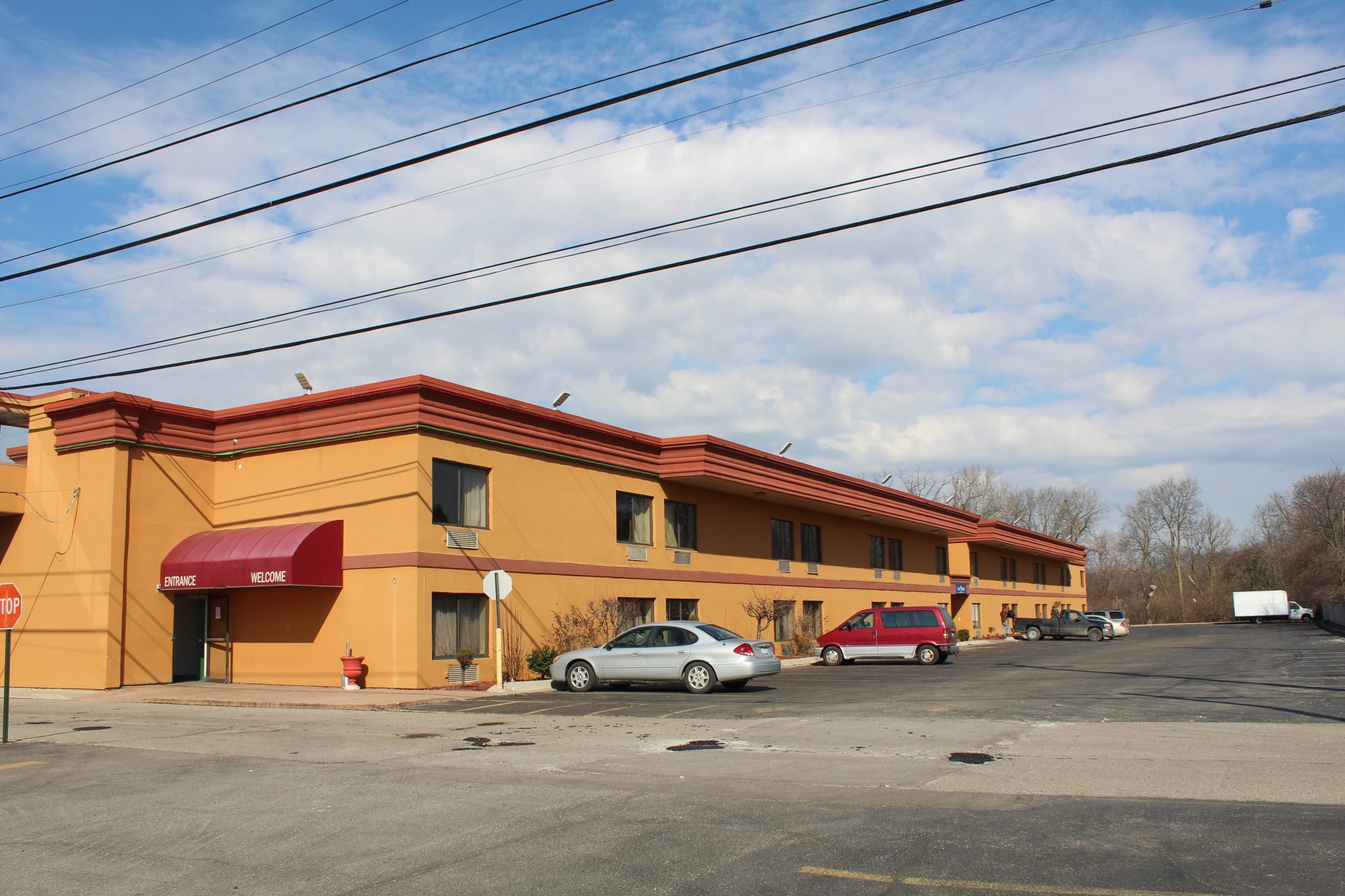Some Afghan evacuees have been waiting for months in Metro Detroit hotels for housing
In Metro Detroit, the state estimates that, as of April 14, about 35% of Afghan refugees were still waiting in temporary housing.

Afghans are being temporarily housed in hotels like this one.
More than 1,700 Afghans have arrived in Michigan since the United States left Afghanistan in August, according to the Office of Global Michigan. These Afghan Placement Assistance (APA) evacuees were temporarily on U.S. military bases and arrived in the state between Sept. 27, 2021 and Feb. 19, 2022.
Once in the state, the newcomers were dispersed to the Lansing area, Kent and Kalamazoo Counties in Western Michigan, Washtenaw County and the greater Detroit area. The Office of Global Michigan estimates that the majority of these arrivals have been placed in permanent housing or have had permanent housing lined up for them by resettlement agencies. But in Metro Detroit, the state estimates that, as of April 14, about 35% of Afghan evacuees were still waiting in temporary housing like hotels.
Mohammad is one of them. We’re only using his first name because he says he worked with the U.S. Embassy in Kabul and he could be targeted by the Taliban. Mohammad has been living in a hotel in Dearborn with his wife and three young children since the end of January.
“That staff is very good people. We are happy. We still happy here,” he says.
Listen: Afghan evacuee Mohammad talks about his family’s new start in Metro Detroit is going so far.
About seven or eight other Afghan families are also staying at the same hotel, according to Mohammad. He says the staff serves them food paid for by their resettlement agency.
“They bring the Arabic food for us. It’s delicious,” says Mohammad. “Afghan food’s a little bit matching.”
The hotel is one of at least three in Dearborn that has been involved in temporarily housing Afghans. While Mohammad voiced no complaints about the hotel where his family is living, he says he wants to enroll his kids in school but he’s been told that can’t happen until they have a permanent address.
“So, I requested our case manager if he could find home for us as soon as possible so we can admit our kids to the school,” says Mohammad. “Still we are waiting and we don’t have any proper response.”
Related: Michigan State University Researchers Recall Harrowing Effort to Evacuate 77 Afghan Scholars
Samaritas is a Detroit-based statewide health and human services organization that operates one of Michigan’s largest refugee resettlement programs. (Last month, ProPublica reported the nonprofit was under investigation for allegations of abuse of Afghan children brought to Michigan after they fled the country when the Taliban took over.) Mohammad’s family is not one of the agency’s clients. Kelli Dobner, Samaritas’ chief advancement officer, says when looking to place families in permanent housing, the agency searches for market rate or cheaper units that are in good condition.
“I requested our case manager if he could find home for us as soon as possible so we can admit our kids to the school” –Mohammad, an Afghan arrival in Southeast Michigan
“There is a checklist that we go through — a house study checklist, if you will — to make sure it’s a safe environment, things are up to code and it’s a suitable living experience for families,” says Dobner.
The agency focuses on finding housing in areas that are accessible to jobs, schools and health care without the need for a car, Dobner says. She says 75% of families who come into the care of Samaritas are self sufficient within 180 days of arrival.
Samaritas is slated to formally announce this week that it’s formed the Detroit Refugee Network, a coalition of corporate, civic and community leaders coming together to welcome refugees and evacuees from Afghanistan and other nations as they resettle in the City of Detroit. The network is expected to play a key role as Ukrainian refugees begin arriving in Michigan, which is expected to happen in the coming weeks and months.
Related: Community Chorus of Detroit helps Afghan refugees rebuild in Michigan
Trusted, accurate, up-to-date.
WDET strives to make our journalism accessible to everyone. As a public media institution, we maintain our journalistic integrity through independent support from readers like you. If you value WDET as your source of news, music and conversation, please make a gift today.

